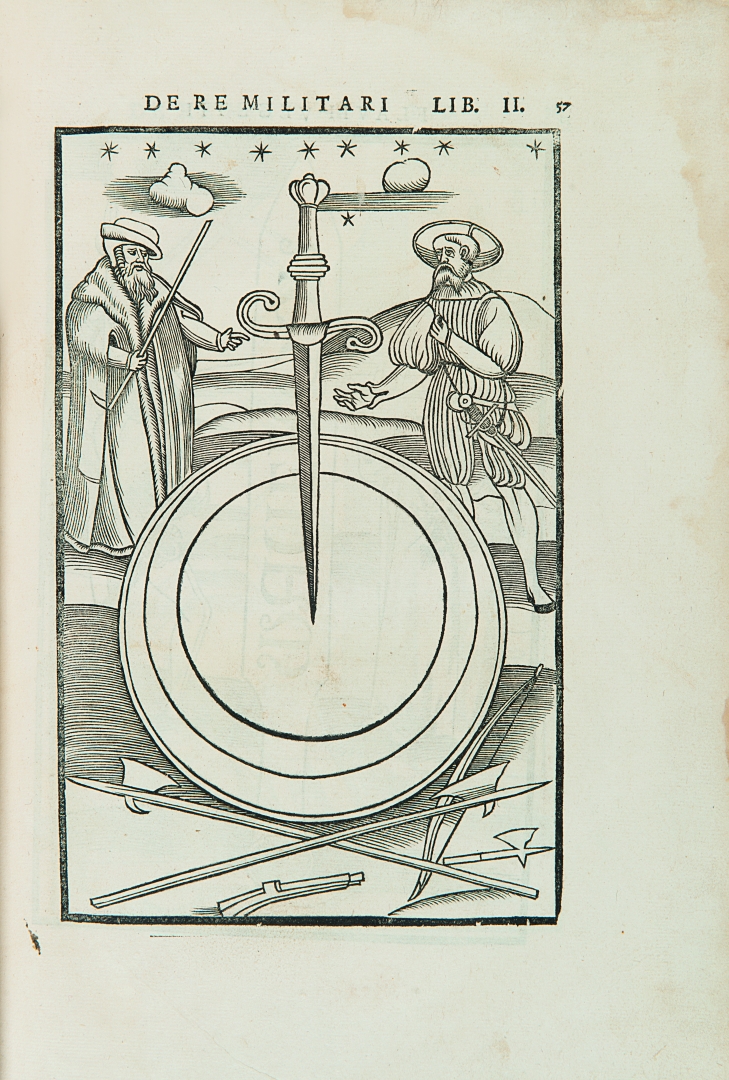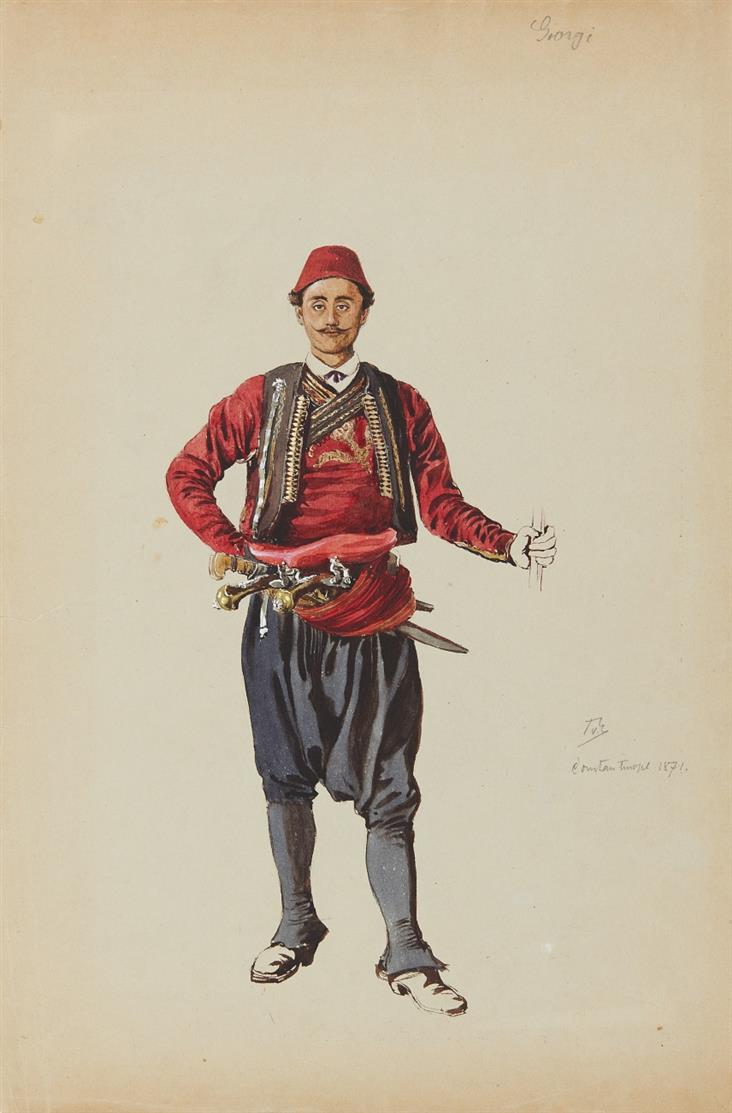Militaria, China, Nanking, 'Chinese' Gordon, horn scrimshaw depicting Gordon, Hung Hsiu Ch'uan and a harbour scene of Nanking c1862; CHARLES GEORGE ... GORDON (1833-1885), soldier and administrator. In 1860 war was declared against China and Gordon arrived there in September. He was present at the occupation of Peking and destruction of the Summer Palace. He remained with the British force of occupation in northern China until April 1862, when British troops, under command of General Staveley, proceeded to Shanghai, to protect the European settlement from the Taiping rebels. The leader of the rebellion was Hung Sin Tsuan or Hong Xiuquan (HUNG HSIU-CHUAN 1814-1864) who assumed the title of Tien Wang, or Heavenly King and was the self-proclaimed brother of Jesus Christ. He established his court in Nanking, which had been captured in 1853. In March 1863 Gordon was put in charge of the joint contingent of European nations fighting the rebels. By May 1864 under Gordon the force had earned the sobriquet ''the Ever-Victorious Army'' and a number of towns had been taken from the rebels. In June 1864 the Tien Wang committed suicide and the capture of Nanking by the imperialist troops shortly afterwards brought the revolt to an end. The suppression was undoubtedly due in great part to the skill and energy of Gordon, who had shown remarkable qualities as a leader. The emperor promoted him to the rank of Titu, the highest grade in the Chinese army, and also gave him the Yellow Jacket, the most important decoration in China. Henceforth he was often familiarly spoken of as ''Chinese'' Gordon, c30cm long, with a rivetted wooden base and brass hanging ring A scrimshaw of General Gordon at Nanking on horn Read more
Militaria, China, Nanking, 'Chinese' Gordon, horn scrimshaw depicting Gordon, Hung Hsiu Ch'uan and a harbour scene of Nanking c1862; CHARLES GEORGE ... GORDON (1833-1885), soldier and administrator. In 1860 war was declared against China and Gordon arrived there in September. He was present at the occupation of Peking and destruction of the Summer Palace. He remained with the British force of occupation in northern China until April 1862, when British troops, under command of General Staveley, proceeded to Shanghai, to protect the European settlement from the Taiping rebels. The leader of the rebellion was Hung Sin Tsuan or Hong Xiuquan (HUNG HSIU-CHUAN 1814-1864) who assumed the title of Tien Wang, or Heavenly King and was the self-proclaimed brother of Jesus Christ. He established his court in Nanking, which had been captured in 1853. In March 1863 Gordon was put in charge of the joint contingent of European nations fighting the rebels. By May 1864 under Gordon the force had earned the sobriquet ''the Ever-Victorious Army'' and a number of towns had been taken from the rebels. In June 1864 the Tien Wang committed suicide and the capture of Nanking by the imperialist troops shortly afterwards brought the revolt to an end. The suppression was undoubtedly due in great part to the skill and energy of Gordon, who had shown remarkable qualities as a leader. The emperor promoted him to the rank of Titu, the highest grade in the Chinese army, and also gave him the Yellow Jacket, the most important decoration in China. Henceforth he was often familiarly spoken of as ''Chinese'' Gordon, c30cm long, with a rivetted wooden base and brass hanging ring A scrimshaw of General Gordon at Nanking on horn Read more















Testen Sie LotSearch und seine Premium-Features 7 Tage - ohne Kosten!
Lassen Sie sich automatisch über neue Objekte in kommenden Auktionen benachrichtigen.
Suchauftrag anlegen